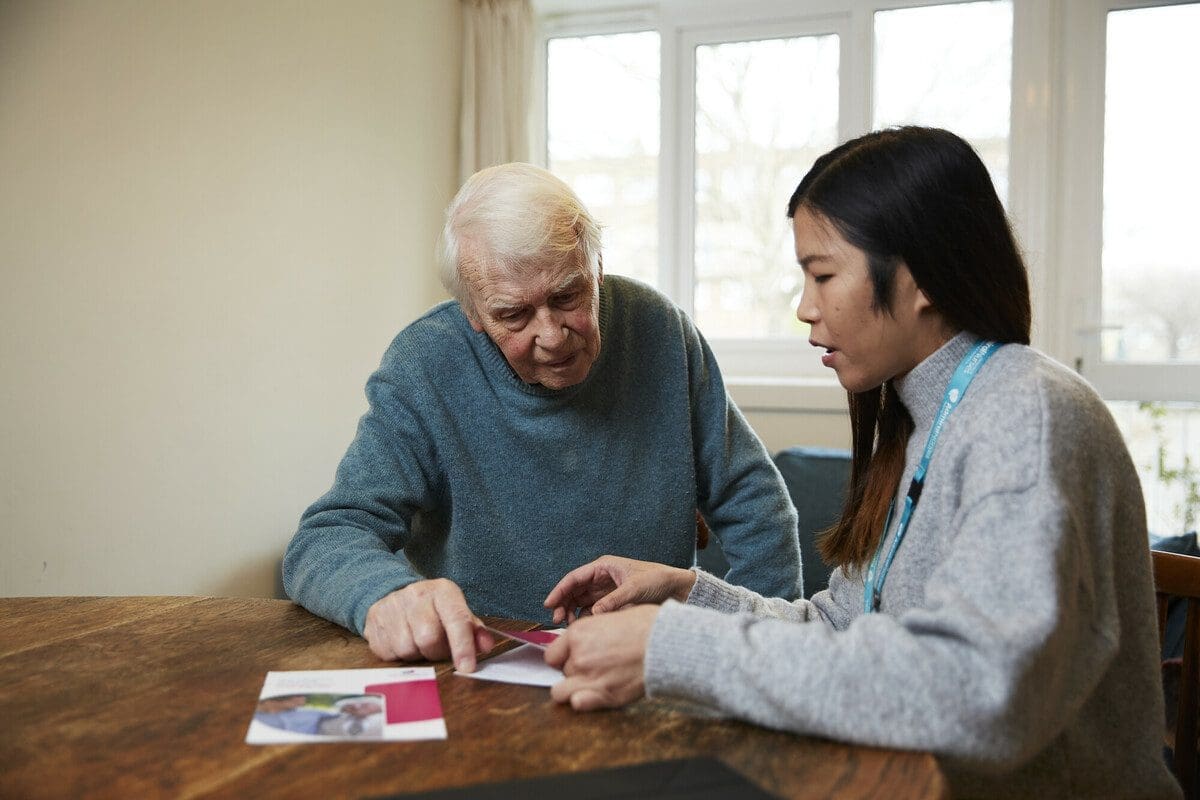Alzheimer’s disease
Find out more about Alzheimer's disease, what causes it, how it develops, and what you can do to manage its symptoms.

Getting a diagnosis of the specific type of dementia you have will mean you can get the right support to help you live better with the condition.
Around one million people in the UK are estimated to be living with dementia in the UK, and someone develops the condition every three minutes.
Dementia causes changes in memory, thinking, personality and behaviour, but symptoms vary depending on which type the person has. Understanding the various types of dementia means people can get the right support to help them live better with the condition.
Here’s what you need to know about some of the most common forms of dementia, including Alzheimer’s disease, vascular dementia and frontotemporal dementia.
Find out more about Alzheimer's disease, what causes it, how it develops, and what you can do to manage its symptoms.
Find out more about vascular dementia, what causes it, how it develops, and what you can do to manage its symptoms.
Find out more about frontotemporal dementia (FTD), what causes it, how it develops, and what you can do to manage its symptoms.
Find out more about mixed dementia, what causes it, how it develops, and what you can do to manage its symptoms.
Find out more about dementia with Lewy bodies, including what causes it and what you can do to manage its symptoms.
Alcohol related brain damage is caused by drinking alcohol excessively over a long period of time. Three main types are Wernicke’s encephalopathy, Korsakoff’s syndrome and alcoholic dementia.
What is Huntington's disease, what causes it, how does it develop, and what you can do to manage its effects.
Find out more about Parkinson’s disease, what causes it, how it develops, and what you can do to manage its effects.
Posterior cortical atrophy (PCA) is a rare form of dementia which people often develop between the ages of 50 and 65.
There are many different types, subtypes and causes of dementia. Each type stops a person’s brain cells (neurones) working properly in specific areas, affecting their ability to remember, think and speak.
Read on for information on the most common types of dementia. Further information about dementia can be found at ‘What is dementia?’.
The most common are Alzheimer’s disease, vascular dementia, Lewy body dementia, frontotemporal dementia and mixed dementia.
Alzheimer’s disease is the most common form of dementia, accounting for around 60% of diagnoses in the UK. It is also the most common form of young onset dementia (where symptoms develop before the age of 65).
Vascular dementia is the second most common type of dementia, affecting around 150,000 people in the UK, followed by Lewy body dementia and frontotemporal dementia.
Although dementia has a common set of symptoms, each type presents itself differently, and people may have some or all of the symptoms. They may also have more than one type of dementia (‘mixed dementia’), with symptoms of each.
Learn more about how to get a diagnosis of dementia.